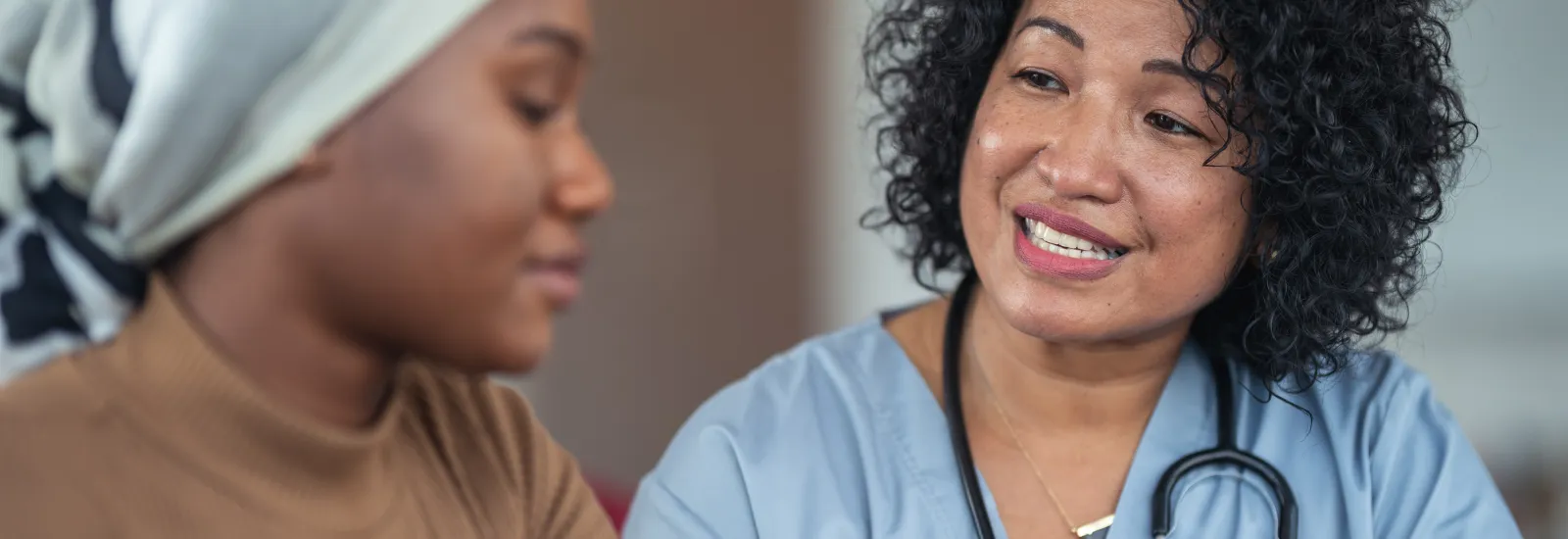
How to prepare for your first oncologist appointment
Learning about the
treatment options and terminology that come with a cancer diagnosis can be
challenging. But at most United States cancer centers, a diagnosis also comes with a team of healthcare professionals who want to support you on your cancer journey. One key
person on your team is your oncologist, a physician who specializes in
diagnosing and treating cancer.
Your oncologist will help
you identify the right treatment options and connect you with other types of
support, including a cancer navigator
who will guide you through every aspect of your care and treatment.
Types of oncologists
Depending on your
preferences and the type of cancer you have,
you may see an oncologist who treats many types of cancer or one who
specializes in specific types.
For example, medical oncologists specialize in diagnosing
and treating different cancers with medications, such as chemotherapy, hormone
therapy, immunotherapy, and targeted therapy.
Depending on your care plan and diagnosis, you may also see a
hematologist-oncologist, who specializes in blood disorders and blood cancers.
Radiation oncologists focus specifically on treating cancers with radiation
therapy. Children with cancer are cared for by pediatric oncologists.
What
to expect during your first oncology visit
During your first oncology
appointment, your oncologist will ask about your health history, do a physical
exam, and discuss the type
of cancer you have and your treatment options.
You'll work together to identify your goals for treatment and address your
questions and concerns.
Your oncologist may
recommend repeating or doing additional lab work, imaging, or other tests to
get more information about your cancer and if it's changing, growing, or
spreading. At the end of the appointment, your oncologist will go over the next
steps in your care plan.
Preparing
for your oncology appointment
First, be sure to bring your insurance and ID cards with
you. It's also good to prepare a list of all your medications, including
over-the-counter medications, vitamins, and supplements. Then decide if you'd
like to bring a family member or friend who can offer support and take notes.
What to ask your oncologist
It can be helpful to bring a list of questions to your first
appointment. If you aren't sure what to ask, here are some common questions to
get started:
Questions about the type and stage of cancer
- What type and stage is my cancer?
- What does the stage mean in my case?
- What is the survival rate for people with my diagnosis?
- Which follow-up visits or tests do I need and when?
Questions about cancer treatments
- What are my treatment options?
- Which treatments do you recommend and why?
- Will the treatment cure the cancer or manage it?
- Do the treatments have side effects?
- How will treatment affect my ability to do things at home or work?
- When do I need to start treatment?
Questions about self-care and support
- Can I exercise while getting treatment?
- How can I take care of my mental health?
- What should I eat or avoid during treatment?
Be sure to ask your oncologist about other resources to support you. Joining a cancer support group is another way to make the journey a little easier.
Have you been diagnosed
with cancer? Contact the Reid Cancer Center
to schedule an appointment with an oncologist and learn more about your
treatment options. We're right beside you.

